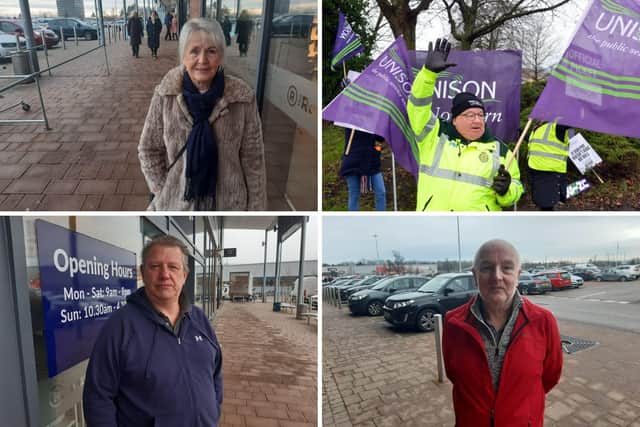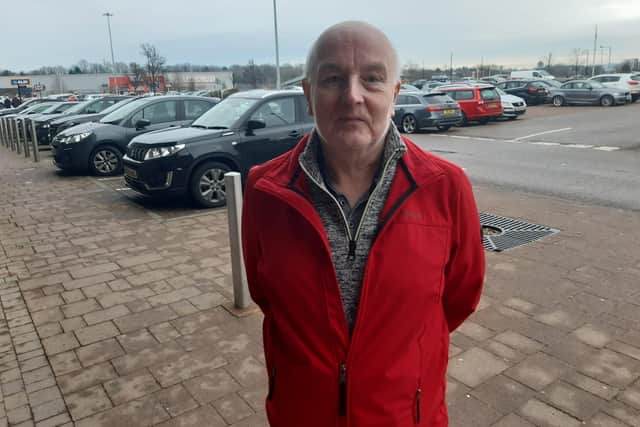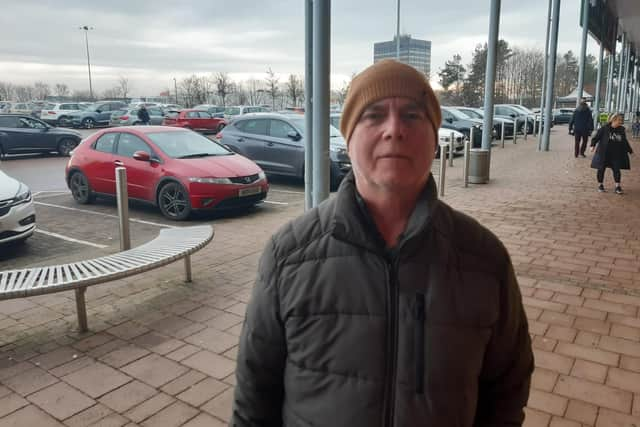Ambulance strike: Watch as Sunderland residents give 'full support' to NEAS strike and slam Government's proposed 'anti-strike' bill
and live on Freeview channel 276
Today (Monday, January 23) saw NEAS workers take part in a third day of industrial action over pay and what paramedics have described as “years of under-funding” which led to the service declaring a critical incident last month due to “significant” delays to response times.
Paramedics, call handlers, drivers and technicians from Unison, the service’s biggest union, gathered on picket lines at Sunderland, Chester-le-Street and South Shields, urging the Government to enter negotiations.
Advertisement
Hide AdAdvertisement
Hide AdRapid response paramedic John Lennon, 60, said: “This action shows our absolute desperation. Taking strike action really goes against the grain. It’s the Government, not us, who are putting patients at risk.”
It was a sentiment shared by shoppers at the Galleries in Washington.
Retired legal secretary Lynnne Patrick, 70, from Houghton, said: “Not enough money going into the NHS is going to the front-line staff, those people who put themselves at risk and deserve better.
"My mother was in hospital in November and December and the ambulance and nursing staff were absolutely amazing.”


Advertisement
Hide AdAdvertisement
Hide AdRetired electrician John McConnell, 64, from Gateshead, said: “I totally agree with the strike. With the cost of living, NEAS staff are totally underpaid for what they do. They’ve a difficult job and should be better paid.”
Part-time merchandiser John Hanson, 68, from Washington, has heard first-hand from his trainee paramedic grandson the challenges NEAS staff face on a daily basis.
He said: “Not just during the pandemic, but everyday NEAS staff are putting their health at risk. They have to go into a lot of potentially volatile situations and my grandson often tells me about what he has to put up with.
"I fully support the strike and feel the workers should get a pay rise inline with inflation. It shouldn’t even need to be discussed.”


Advertisement
Hide AdAdvertisement
Hide AdPensioner Elizabeth Enguita, 73, from Washington, added: “During Covid, these people put themselves at risk and I support their strike. They should be paid inline with inflation.”
Paramedic John, who’s also a Unison representative, said the main reason for industrial action was not pay, but chronic under-funding which has seen stipulated serious emergency response times of 18 minutes “rise to an average of one-hour-and-35-minutes”.
Manufacturing consultant Mark Pople, 55, who’s currently working in Washington, said: “We will all need to use an ambulance at some point and the strike action is also for patients. You see the queues of ambulances outside of hospitals and I think if this was addressed then pay would not be such an issue.”


With an escalation in national strike action, the Government has this month introduced an ‘anti-strike bill’ which, if ratified, would see health, fire and rescue, education, transport and nuclear industry workers have to provide a “minimum level of service”.
Advertisement
Hide AdAdvertisement
Hide AdMark said: “It’s a fundamental right to withdraw your labour as this is the only influence an employee can have on their employer.”
John said: “I totally disagree with this. Without the right to fully strike, employers have free reign to do what they want to employees.”
Elizabeth added: “The right to strike was established to have maximum impact and this bill would remove that, allowing employers to railroad workers into what they want.”
